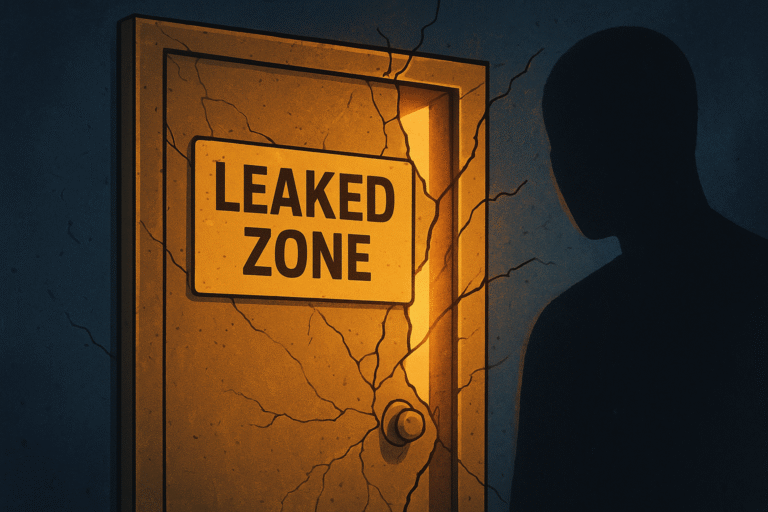Introduction
Have you ever stumbled across a piece of information you weren’t supposed to see? Maybe it was a screenshot, an email, or even a strange file link whispered through an online forum. Welcome, my friend, to the leaked zone—a space where secrets are cracked open, whether intentionally or by accident, and what was once hidden suddenly takes on a life of its own.
The leaked zone isn’t just about confidential files escaping into the wild. It’s about culture, digital shadows, and the human urge to peek behind the curtain. From entertainment spoilers to global scandals, from small-town gossip to government documents, leaks have the power to shift narratives overnight.
So, let’s pull back that curtain and dive deep into this elusive world.
The Anatomy of the Leaked Zone
What Exactly Is a Leaked Zone?
The phrase leaked zone captures that gray area between public information and guarded secrecy. Think of it as a liminal space—a borderland where information crosses over from locked vaults to the buzzing digital agora.
At its core, it’s defined by:
- Unintended exposure: Information surfaces without official permission.
- Rapid spread: Once something is out, it’s almost impossible to contain.
- Emotional charge: Leaks often spark shock, anger, or excitement.
But here’s the twist: not all leaks are born equal. Some are deliberate whistleblows. Others? Clumsy accidents that spiral out of control.
Why People Are Drawn to Leaks
The Psychology of Curiosity
Why do leaks fascinate us so much? It boils down to curiosity. Humans love stories, but they love forbidden stories even more. When someone says, “You’re not supposed to know this,” what happens? Your brain perks up instantly.
- Scarcity effect: We value rare or restricted information more.
- Social bonding: Sharing a “secret” makes us feel connected.
- Rebellion factor: Accessing leaks feels like defying authority.
Leaks essentially tickle our primal instincts—part thrill, part danger, all intrigue.
The Dark Side of the Leaked Zone
When Curiosity Crosses the Line
But wait—before you romanticize the leaked zone too much, remember it’s not always sunshine and juicy gossip. Some leaks cause irreversible damage.
Consider:
- Privacy violations – Personal photos or messages released without consent.
- Corporate sabotage – Blueprints or trade secrets falling into rival hands.
- National security risks – Classified information slipping into hostile territories.
One wrong move in this zone, and entire lives, careers, or even nations can be shaken.
Iconic Moments Born in the Leaked Zone
Spoilers, Scandals, and Shocking Reveals
The leaked zone has given us some of the most unforgettable cultural moments.
- Entertainment leaks: Scripts of blockbuster films surfacing online before release. Fans feast on the leaks, while studios panic.
- Music leaks: Artists waking up to discover their unreleased album is being streamed illegally worldwide.
- Political bombshells: Documents exposing corruption, surveillance, or cover-ups, rocking governments and shaping history.
Isn’t it wild how a single document, video, or recording can flip the world upside down?
Navigating the Leaked Zone in the Digital Age
How Does Information Leak?
In our hyper-connected age, the ways secrets slip out have multiplied. Common leak pathways include:
- Hacks and cyberattacks
- Insiders with grudges (or consciences)
- Misplaced devices—hello, “forgotten USB stick”
- Unsecured cloud storage
- Screenshots gone rogue
It’s no longer just about someone leaving a file in the wrong drawer. One wrong click today can create a ripple effect across the globe.
Living with Leaks: Can They Ever Be Controlled?
The Futility of Plugging Every Hole
Here’s the honest truth: once information enters the leaked zone, it’s nearly impossible to rewind. You can try takedowns, lawsuits, or damage control campaigns, but the internet has a long memory.
As one digital adage puts it: “The internet never forgets.”
That said, individuals and organizations can minimize risks by:
- Strengthening cybersecurity systems.
- Training people on data handling.
- Building transparency so leaks lose their explosive edge.
The Bright Side: When Leaks Help Society
Whistleblowers and Truth-Tellers
It’s not all doom and gloom. Sometimes, leaks illuminate truths that desperately need to be seen.
- Exposing corruption: Leaks can unmask misuse of power.
- Protecting citizens: Hidden health or safety risks brought to light.
- Fueling democracy: Access to concealed documents can spark public debate.
In these moments, the leaked zone becomes less of a dark alley and more of a beacon.
How to Stay Safe in a World of Leaks
Protecting Yourself from Falling Victim
You might be thinking: “Okay, but what about me? How do I avoid ending up in the leaked zone myself?”
Here are some practical tips:
- Think before you share – Once online, it’s vulnerable.
- Use strong passwords – Obvious, but often neglected.
- Enable two-factor authentication – Adds another layer of defense.
- Be cautious with cloud storage – Double-check privacy settings.
- Avoid oversharing in DMs – Private messages aren’t always private.
A little digital hygiene goes a long way.
FAQs about the Leaked Zone
Q1. Is the leaked zone always illegal?
Not necessarily. Some leaks, especially whistleblowing, can be legally protected under certain laws. Others, like piracy or stolen data, are clearly unlawful.
Q2. Can leaked information ever truly be erased?
It’s extremely difficult. Even if platforms remove it, copies tend to resurface elsewhere.
Q3. Why do people spread leaks if they know the risks?
The mix of thrill, attention, and sometimes profit makes the temptation too strong to resist.
Q4. Should I ever engage with leaked content?
That depends. While harmless spoilers might be fun, consuming or sharing stolen personal/private data crosses ethical lines.
Conclusion
The leaked zone is like a mirror to humanity’s obsession with secrets. It’s messy, dangerous, exciting, and occasionally revolutionary. Whether it’s an unreleased song making its way to your headphones or documents that reshape global politics, leaks remind us of a universal truth: once information escapes, it takes on a life of its own.
So, next time you find yourself peering into the leaked zone, ask yourself—are you chasing curiosity, or are you about to cross into something far more complicated? The answer might just determine whether you’re simply entertained… or caught in the storm.

